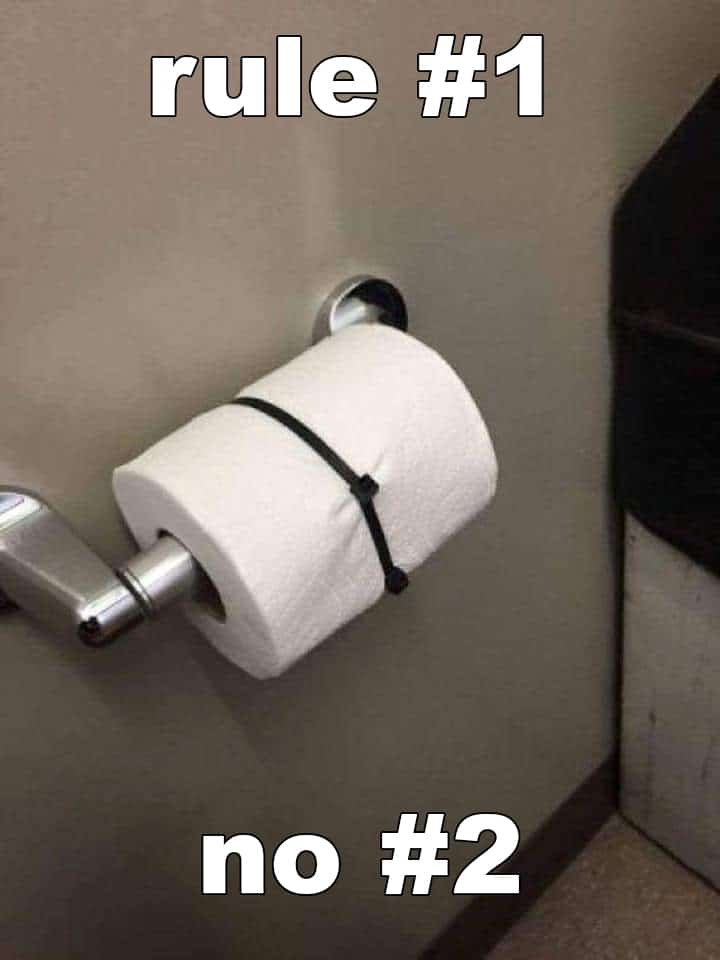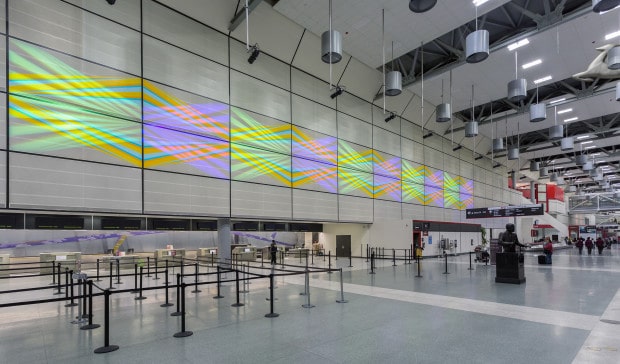
Sometimes our lighting world feels like this — task lists and spreadsheets and travel schedules and light plots, oh my!

I’ve been traveling a lot.
A lot, a lot.
Try keeping up with Brad White (he’s an effing machine, folks, I learn a lot from him pretty much every day AND he’s not a d-bag about it), but I most definitely have been making the rounds more than I ever have in my life. Right now, for example, my body is in three time zones, so sleeping is a joke. It doesn’t matter anyway because I’m flying back to another time zone where I can wait for a whole day to get some sleep, have no time to go to the firing range (my hobby is shooting as a lot of you know), or even have a break from the go-go-go. I’m not sure why, but I really like it that way. This is perfectly OK, fully acceptable, and a major part of the business. It’s a bit masochistic, methinks. I live and die to help people have a good show, even if it’s be going to a job site and putting my hands on someone’s shoulder and telling them how killer that look they just wrote was.
An old friend asked me recently about living in light and how it differs from his life, this very energetic and powerful industry full of powerful people… and I really didn’t know how to answer because I don’t really know any other way, this is the life I live. So… I suppose just writing down some of the things I’ve learned because of lighting and the lighting industry might be a useful post. I’ll be the first to tell you that I have learned a lot of things by smashing my face into them until I could either no longer feel my face or a I figured out a different way to accomplish a task, but I think that if you’re about to get out of school, if you’re switching careers and trying to get into lighting somehow, or just looking for another path — allow me to impart some of the hard-knock wisdom I’ve learned in my life.

Here’s an unordered list of things that I’ve been thinking about in hotel rooms and airplanes as I’ve been spreading the photon love across our beautiful Earth.
- Be a good person. No one wants you on their crew if you’re unable to smile and at least make other people feel like you want them around. This is so important, especially if you’re an impressionable new tech/designer/manager/hand in our awesome industry. If you follow this rule, I promise you will go far.
- Always bring your tools.Have you ever shown up to a call without a C-wrench or some other piece of gear that actually makes you useful? I’ve yet to meet a woman or man who can tighten bolts of various sizes tight enough with their hands to make a difference, so don’t look like you came to work without your brain. Also, it gets real old really quickly to have to provide someone with a wrench who is probably going to walk off the job with MY wrench, so bring your own shit.
- Everyone is tired. You’re not the exception. That guy over there? He’s probably been on the job just as long as you, and all your whining wants to make people do is staple gun your lips closed, and never call you again for a gig. We’re all guilty of this, me included. It’s really up to you to keep it to yourself as much as possible. There’s certainly a time and place, but usually during the gig isn’t either of those.
- You’re not as good as everybody doing what you do. This is particularly true when it comes to recently graduated students, people who have huge egos, and people without talent. There are anywhere from 5 to 5,000 Stevie Ray Vaughans in Nashville right this moment, for example, who didn’t have the “right place at the right time” scenario like SRV did, and the same thing goes for lighting designers and programmers. There’s one Peter Morse, there is one Patrick Dierson, there’s one Benny Kirkham, there’s one Sean Cagney. Be humble, be real. Be yourself and do your own stuff.
- Your resume is for getting jobs, not talking about ON a job. If you think the rule above didn’t apply to you, try this one. No one cares how many shows you did when it comes to the professional industry — we’ve all done lots of shows. You obviously wouldn’t be on a show if you were completely worthless (well, your mileage may vary) but the general idea is do your job and prove to me that you can by doing that job without me having to go back and do it again.
- Relationships are sometimes hard. I’m divorcing right now. It happens. Not all relationships last, and not all people are meant to be together. It’s just life. Get a helmet. Don’t let it ruin your life, move on and find happiness. It’s not the end of the world. Here’s an idea: make sure that your significant other knows exactly what you do, how long it takes for you to do it, and if you travel, make sure that it’s not a surprise. Do all of this before you set out on that first leg of the tour.
- Don’t be deadly. When you do things on the job site that endanger your fellow hands and staff… you’re deadly. We work in what’s typically classified as a hazardous environment. It takes one moment to forget to do something, and that one thing could cause a chain reaction of failure that could and will eventually take the lives of those who are just working to support themselves and their families just like you. Don’t be deadly. This is just entertainment. No matter how much a show costs, it’s never worth a funeral. We play for a living.
- Be expert at what you do before you give advice to others. So often on a job site, people are quick to give advice to other seasoned professionals in order to look like an expert at their job and make whomever is doing that job right now look less qualified. That makes you a douchebag. Don’t be a douchebag. You would be surprised how much nicer the workplace is when everyone isn’t pissed off. Seriously!
- The client is usually right. Sorry folks, this is true. Who do you think is paying the rent? However… you’re a seasoned professional. If you think the client is wrong, it’s your responsibility to prove, beyond a shadow of a doubt, that you have a better idea to make their show even more awesome than they think they’ve made it. But — can you do it without telling them that you’re right and they’re wrong? THIS is what makes a REAL seasoned professional. Just make sure that you’re doing what is best for the show.
- There is a time and place to be wasted. That time is never, ever during work hours or show call, and never, ever at the show site. Some people may disagree with me here, but I’d rather we all disagree a little than me having to write another post about people dying at work. Cokehead riggers, methed out carpet kickers, baked loaders, drunk focusers… I feel like I’ve seen at least a little bit of all of it, and it still scares the crap out of me. A whole lot of us like to party in this industry — let’s do it at the party or after the party we’re working. I need my crew at their top performance, and so does everyone else. You may think that you can work while you’re blasted. You cannot.
- Politics is always a bad discussion topic at work. We all talk about it, we all get offended when someone tells us that we’re wrong, and you can barely ever make an inroad with someone who doesn’t want to connect your opinion with their political beliefs. Hey, this is our future we’re talking about here! At least in lighting, which is where I’ve lived my life, there is a major polarization of the two party system, and even a greater separation within each party. Plus, we in lighting tend to be very passionate about the things we like and dislike, and the last thing you want to do is get into a political debate when people want you to string multi. Save it for break, and even then, be human.

- Find a hobby. You need something to do outside of working. I can’t stress this enough. Find something other than light that you like doing, and do it when you want outside of working. My hobby is shooting and firearms, and it’s something I enjoy that relieves the stress of life’s foibles. In my particular case, my hobby and the time I’ve spent on it gives me a way to protect myself from some of the crazies out there in the world. Speaking of…
- Crazies are everywhere. There is a staggering amount of completely unreasonable people in the world, from lighting to marketing to production, and everywhere in between. There are people out there who will stalk you, drive by your house, try to hack your email, and they make it their life’s work to ruin yours. Be smart; get an attorney. Slander is Slander, Libel is Libel, and Stalking is Stalking, even digitally, and it’s all against the law. Protect yourself, don’t let someone intimidate you because they’re miserable with who and what they’ve become. If the law won’t help you, make sure you can shoot center mass if they breach your perimeter and decide they want to hurt you. Some people don’t know when to quit, and make it their life’s mission to cause you pain and injury.
- Take care of your body. I’m trying to work on this the older I get, and the older I get, the more important it gets. When you put garbage into your system, you get garbage out of your system. This industry does not favor a lack of energy, and the more sluggish you are at work, the more sluggish you’re going to find your pay to be. Plus, that 45-minute dump you had planned during the call is really screwing up my workflow. Also, if you’re overweight, lose some of that weight and see how much better you feel. I have another 30 pounds before I’m “satisfied” with what I am, and every five pounds feels like five more happy years on my life.
- Get really good at networking. Learn how to manipulate TCP/IP networks. Get really good at it and become familiar with the equipment, methods, and structure of said networks. Everything (almost) in lighting has become a network device, and everything (almost) is talking DMX wrapped in a header of some kind over an ethernet line. Welcome to the future. Also, please don’t rely on that 25 dollar hub or switch to be your network highway when you’ve spent several hundreds of thousands of dollars on control, fixtures, and other equipment. Please don’t do that for your show’s sake!
- Learn how to solder. Just do it. This should be as important as wiping your own ass in this industry.
- Be nice to those who may appear to have the least impact on your life. This is a pretty easy one, actually. It’s evident when you go out with colleagues or other professionals… watch how people treat wait staff, restaurant workers, janitors, drive through order takers, and anyone you run across in your day. It absolutely drives me to fury when I’m with someone I respect and I see them shit on someone like that, I instantly lose some of my respect for them. Be nice to people, you never know what kind of war they might be fighting today. Besides, who the hell do you think you are? We’re all humans. Spread some kindness.
That’s enough for now. I’ll update this as I go, but I think you all know what I mean. If you have extra guidelines for lighting life, please post in the comments. You’re always welcome here.





Throw out the technician vs performer shit. That shits for high school. Be professional….sure they may have cushier gig’s but the reason I’m not on stage is I freeze….stone cold….can’t do it….and they can. So cut them some slack and realise we are all here to deliver an awesome performance. Ties in with the just be nice thing…but on a different level.
Great post, brother. Thanks for the shout out and most folks are GLAD there is only one of me.
Minimize the weight, maximize the utility when flying.
Disc compression is real; you don’t need that much copper in your carry on. Throw the three cat-6 cables, ethernet switch, flashlight, airport express, extra USB chargers, laser pointers, bluetooth speakers, personal com headsets and any other non-mission critical items in the checked bag. There will be a box store nearby somewhere for cheap one job substitutes should you need them. Phone in the order from the taxi to whoever can get it done.
Bring spare underwear and socks in your checked bag instead of the copper. Weather is unpredictable, ironic, and cruel. Three day airport layovers are real. Fresh undergarments make life tolerable even if civilization is breaking down around you (and it will be).
Try to nail 50lb exactly with your checked bag on a long gig. If you do, post the pic of the scale to social media.
I love your articles, Jim. Very much grounded in reality.
I decided (in my mid-30’s) to quit my career in TV post production to finally pursue a career as a programmer. Not to be the next Peter Morse (a hero of mine) but to have the chance to work with people like him.
I packed up my entire life, moved to a new city to do a uni course in live events production.
Then I quickly started encountering these kind of people that embody your run-down:
Be a good person.
You’re not as good as everybody doing what you do.
Your resume is for getting jobs, not talking about ON a job
Don’t be deadly.
Be expert at what you do before you give advice to others.
Politics is always a bad discussion topic at work.
Find a hobby.
Crazies are everywhere.
Be nice to those who may appear to have the least impact on your life.
….and that was just in the first year.
Also, apparently (in the UK at least) you won’t get anywhere or at least are not welcome in the industry if you don’t start by pushing road cases.
I have an old traffic injury that, during this course, I discovered I wasn’t going to be able to push road cases etc. I wasn’t looking for a short cut, just a different route. Apparently there isn’t one
I’m sure the majority of the industry are decent people. But even for a small minority, with people like the above…I’d rather be unemployed.
Hopes lost, money down the toilet, cynicism enlarged.
I’m back in TV post production.
Comments are closed.